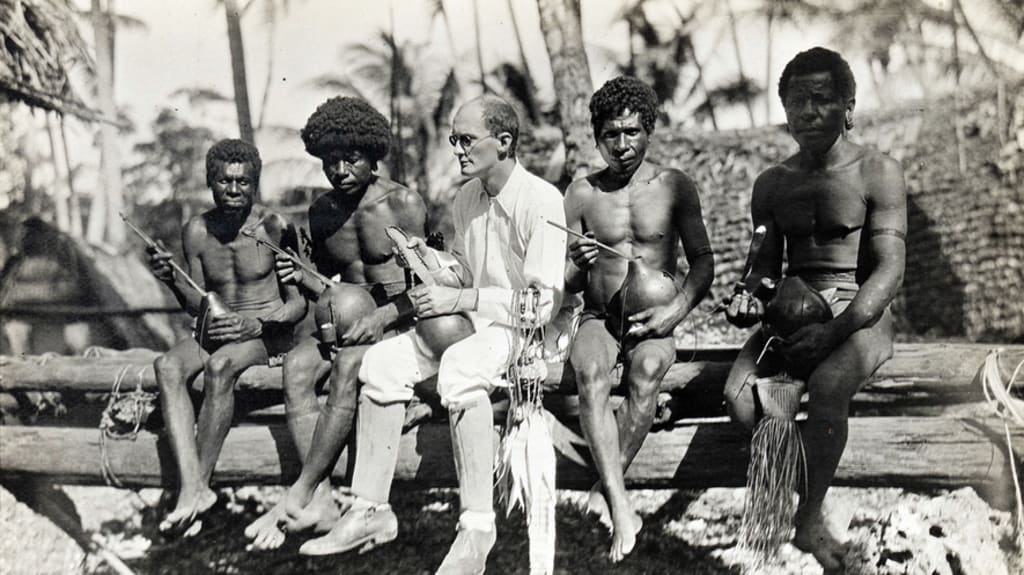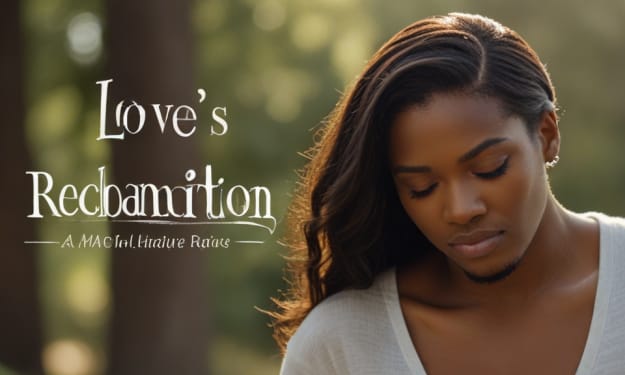
I have always been fascinated by people, the way they think, talk, behave, their body language, history, culture and so many other aspects. This personal obsession has led me to acquire a ‘knack’ for talking to people, observing them, and I would like to think interpret them. I always knew I wanted to major in psychology. To me, psychology is not just my major, it is my personal life. It motivates, excites and impassions me. However, even though psychology addresses many and most of human behavior it is still just one of many perspectives. In order to understand something, you must be able to understand it as a whole, not just in pieces. This why I minored in sociology and have taken any and every class I can that pertains to this obsession, whether it be history, philosophy, communications, religion, minority studies and now anthropology (none of which go toward my major at all by the way). It is my ethical obligation to undo any stereotypes or ethnocentric ideologies that my culture and history has emplaced on me, not just for my patients but so I can objectively understand and empathize with the world around me. I do not want rose or any other colored glasses, nor do I want plain ones, I want one in every shape and color so that the mysterious of the world and people around me can be appreciated in their own beautifully unique ways. This is precisely what anthropology can and has helped me do, not only in my personal life but in my career.
Cultural anthropology has a hands-on approach of analysis, with many wide reaching perspectives; one could even argue it is the only area of study that actually incorporates all of these perspectives. Culture, linguistics, ecology, biology, inequality, activism, diversity, minorities, stratification, politics, economics, race, ethnicity, religion… I could keep going but frankly, I think I have made my point. There are many areas of study that address these different aspects of life but I haven’t found a single subject that incorporates all of these, other than anthropology. Don’t get me wrong I’m definitely a psychology major and I truly believe that to understand humans in a full capacity you should take all the psychology classes possible, but anthropology is giving me a bit of a run for my money. This might not be so true if the biopsychosocial model was more widely utilized but it’s been generally viewed as impractical so we separate those specialties. To be clear, anthropology has first and foremost, confirmed my belief that all aspects of human nature, culture and exchange are fundamental in understanding and helping people. Secondly, it examines both sides of an event or group and remains largely objective in the face of complex and contradicting ideologies. This teaches people, including myself, how to step away from previous assumptions and just listen and watch before making a conclusion. And thirdly, it is fundamentally observation at its finest, which is the best tool for learning and understanding. I could read every book ever written on a culture and still not have a full understanding until I have lived it with them. To summarize, anthropology has helped me hone my observation skills and has helped me practice suppressing my conclusions until I have truly listened and observed.
To annunciate this, when I was younger I used to think that unless you were raped or something like that, an abortion is fundamentally terrible. I used to say, ‘you knew what you were doing when you had sex, so face the consequences’. My opinion was based only on my personal understanding, not taking into account the numerous factors and emotions that are involved in such a decision. Not only did my religious upbringing influence this opinion but I also believed that it was pure common sense, especially with the availability of birth control and safe sex education. I did loosen my opinions, but basically I felt this way until a very close friend of mine got pregnant. She was in an abusive relationship and had been trying to leave him for a long time but ended up pregnant. She is a great person but she didn’t know what to do. If she had the baby she wouldn’t want to keep his child from him but she couldn’t imagine having him in her or her child’s life forever. What if the baby ended up like him or worse in a situation with an abusive person like she had? I know a lot about human development and to say that these thigs couldn’t happen is naïve. She finally decided to get an abortion I went with her and took care of her and held her when she mourned. Though, my original argument isn’t invalid it was uninformed and the opposite of empathetic. Needless to say, my opinion on the matter is very different now. Anthropology takes an issue and views all sides of it by listening first then forming a conclusion, this is called cultural relativism. Not only does this allow an observer to objectively understand a particular issue, but it focuses on the importance of understanding the situation as well as other factors such as economics, religion, kinship and politics. If I had taken the anthropological stance, I would have made a more informed opinion from the beginning, rather than having to watch someone close to me experience it to widen my perspective. From an anthropological perspective I can evaluate both perspectives. On the one hand, if a man cut a pregnant woman and killed her unborn baby and not the mother, he would still be charged with murder, right? So is it just when the mother makes the decision it’s considered a choice rather than murder? Is this because sense the child hasn’t been born yet so it is the mother’s property to do what she wishes? But then why arrest women using drugs while pregnant? Is a baby only a person once named and a birth certificate is made? No, because of pre mature birth as well as abandoned unnamed babies. I could go around in circles with all of the different perspectives but with an anthropological view I have the ability to view all sides of the issue without shutting out possible information as well as lose touch with my empathetic nature. It changes the discussion from deciding who/what is right and into an objective analysis with room for sympathy, understanding and discourse, even in the midst of emotionally complicated issues.
These characteristics will also be essential for my career as a psychiatrist. Blaming the victim has been a common attribute when addressing mental health issues. When I was living in downtown Cleveland, I developed a relationship with many of the homeless people living around where I lived and worked. Though I never gave money, it was very common for me to give cookies, soup, sandwiches and cigarettes. I never did an ethnographic analysis but I certainly learned a lot about their lives. Though it is true, many of them drank alcohol or had developed other addictions, I would also see them with anti-psychotic medications or other mental health prescriptions (with their names on them). I never asked what they were for, mostly because I didn’t want to pry but this opened up a whole new perspective about homeless peoples’ lives. Yes they may have addictions but they often have underlying mental health issues which have lead them to a homeless lifestyle. Most assume (in my experience) that when a homeless man is speaking to themselves or acting odd it is because they are on drugs or that drugs have distorted their realities, when in fact, it is because they suffer from a diagnosed psychosis, etc. Two thirds of the homeless people in America suffer from mental illness (sociology of mental illness, Cleveland state University, 2013). These observations and disparities I have learned about through my education and experiences shock me. The APA promised to provide community based health programs, and though they have tried, it has been largely unsuccessful. This is the reason I plan to open as many free mental health clinics as possible, in order to provide medications and direly needed therapy for those who cannot afford it themselves. I also hope to help educate people about mental health and help communities break previous assumptions and stigmas about mental health. I will use anthropological analysis to aid me in this educational process.
Elisa Sobo addressed many transferable issues in her ethnography about child vaccinations. Though I will not be trying to convince people to vaccinate their children, I will be convincing people to stay on their medications as well as continue their therapy. “variously unnecessary, toxic, developmentally inappropriate, and profit driven.” (Sobo, 2015) All of these things can be true of mental health medications. The pharmaceutical industry has a lot to account for when it comes to mental health prescriptions and people are justified in feeling these ways about it. With severe mental health diagnosis, individuals will be expected to take medication for the rest of their lives and in many cases individuals who should attend therapy and eventually stop taking their medications are perpetually prescribed them by psychiatrists. There are a lot of reasons for this that I do not have time to discuss, however, it is important to address the fact that I will have to convince and motivate people to continue their therapy and medications. A lot of people who have been diagnosed leave feeling taken advantage of and angry at the psychiatric industry. Though it is partially due to denial, it is also due to justified observations. There are severe side effects to many of the mental health medications and it can take a very long time to find the right combination. Understandable so, this can make someone feel like they are just throwing pills at them and seeing what sticks. Many would much rather deal with it on their own than rack up extremely high bills and deal with the side effects.
A solution to this is to make therapy more available. Medications for mental health only treat the symptoms, such as hormone levels and neurological activations. Therapy finds the cause and addresses how to fix it. Unfortunately, therapy can be more expensive than medication and just as hard to find insurance coverage for. Informing the public on these issues as well as addressing possible solutions in the same way that was suggested by Sobo, is the only way to make progress. Misinformation and social cognitions are key elements in the development of stigmatization about mental health. They must be directly addressed and empathized with in order to begin a movement of change. People lives are at stake and I believe that the only way to help is to fully understand all sides of this issue and address it in an objective, culturally relative way. Anthropology may be the missing key in improving these direly important issues within our society and I intend to utilize this in order to change lives, and maybe, just maybe change policies and perspectives that could change the world of mental health.
Bibliography
Diagnostic And Statistical Manual of Mental Disorders: DSM-5
2013. Washington, D.C.: American Psychiatric Association.
Halgin, Richard P.
2013. Clashing Views in Abnormal Psychology. New York: McGraw-Hill.
Lieberman, Jeffrey A., and Ogi Ogas
2015. Shrinks: The Untold Story of Psychiatry. New York: Little, Brown and Company.
Sobo, Elisa J.
2015. Social Cultivation Of Vaccine Refusal and Delay among Waldorf (Steiner) School Parents. Medical Anthropology Quarterly MEDICAL ANTHROPOLOGY QUARTERLY 29(3): 381–399.
Tausig, Mark, Janet Michello, and Sree Subedi
2004. A Sociology of Mental Illness. Upper Saddle River, NJ: Pearson/Prentice Hall.






Comments
There are no comments for this story
Be the first to respond and start the conversation.